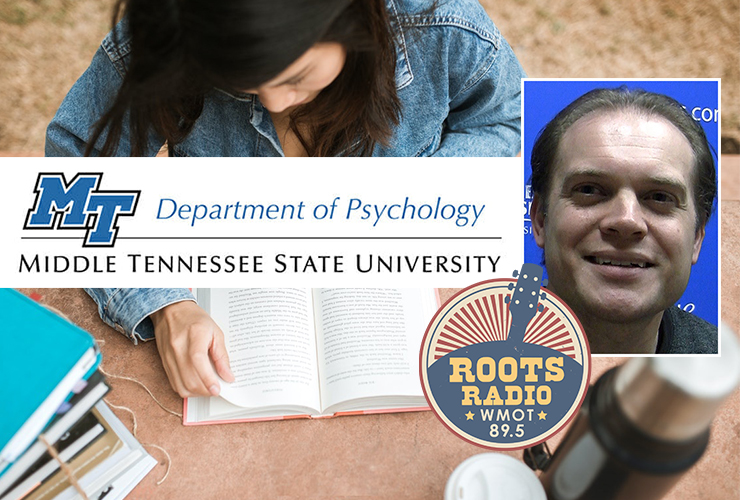Determining how rhythmic stimuli help the brain improve a person’s ability to read was the subject of a recent “MTSU On the Record” radio program.

Dr. Cyrille Magne
Host Gina Logue’s interview with Dr. Cyrille Magne, a professor of psychology, first aired Feb. 9 on WMOT-FM Roots Radio 89.5 and www.wmot.org.
You can listen to their conversation via the Soundcloud link above.
Until the COVID-19 pandemic halted their work, Magne collaborated with Vanderbilt University colleagues on research funded by a 2019 National Science Foundation grant.
Their studies focused on the relationship between rhythm and reading skills at behavioral, neural and genetic levels.
Magne is particularly interested in the application of neural entrainment to dyslexia and reading disorders. Neural entrainment is the brain’s ability to connect brain wave frequencies in synchronization with external stimuli, whether those stimuli be visual, auditory or touchable.
Magne said some of the research involves the popular children’s books of Theodor Geisel, also known as Dr. Seuss.
“The reason for that is we are particularly interested for that project in how individuals use rhythmic cues in language,” Magne said. “It’s very important because you have languages like my native language, French, in which the stress (emphasis) is highly predictable. It’s usually at the end of a word or sentence. But you have other languages like English, where it’s not.”
To hear previous “MTSU On the Record” programs, visit the searchable “Audio Clips” archives at www.mtsunews.com.
For more information about the radio program, contact Logue at 615-898-5081 or WMOT-FM at 615-898-2800.

MTSU psychology professor Cyrille Magne, shown at right, is the guest on the Feb. 9 “MTSU On the Record” radio program, discussing his research with Vanderbilt University colleagues that focused on the relationship between rhythm and reading skills at behavioral, neural and genetic levels. (background image by RODNAE Productions/Pexels)

COMMENTS ARE OFF THIS POST